Jingmai Mountain, one of China's six major Tea mountains, boasts rare ancient tea forests cultivated by humans.
On September 17th, the “Pu'er Jingmai Mountain Ancient Tea Forest Cultural Landscape” was successfully inscribed on the World Heritage List, becoming the world's first tea-themed cultural heritage site.
Living with the mountain and thriving with tea, the people of Jingmai Mountain cannot live without the mountain or the tea. With a history spanning thousands of years and passed down through generations, tea has become an integral part of their production and daily life.
To the people of Jingmai Mountain, tea is a dowry, a precious gift, a source of prosperity… and above all, a faith!
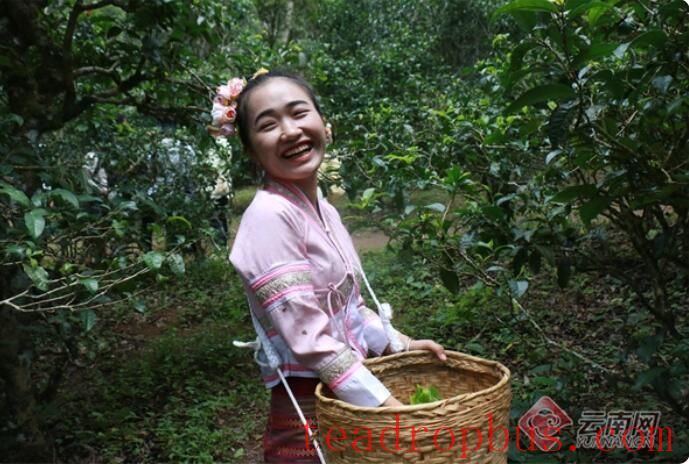
Tea Picking
Faith: Everything Originates from Tea
“Tea is the mother's milk, a part of life, a guarantee of livelihood, a tree of gold and Silver; we love tea and revere it even more.” At the Pu'er Jingmai Mountain Ancient Tea Forest Cultural Landscape Exhibition Center in Humin Town, Lancang Lahu Autonomous County, this Bulang folk song is displayed prominently.
With the song's lyrics echoing in our minds, we drove to Mangjing Village, where tea is omnipresent. The ancient village is permeated with the aroma of tea, and “one bud and two leaves” adorn the rooftops. Villages are filled with tea plantations, every household picks and processes tea…
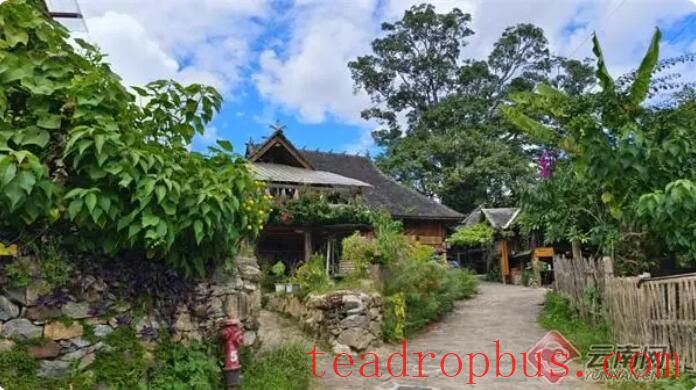
Bulang Ancient Village
“Tea saved the fate of the Bulang people, and we treat it as a part of life, worshipping and cultivating it.” Speaking about Jingmai Mountain's Tea culture and history, Su Guowen, a provincial inheritor of Bulang traditional culture, speaks passionately, “Around the 10th century BC, the ancestors of the Bulang people migrated to Jingmai Mountain, where wild tea trees saved the Bulang people suffering from an epidemic.”
Since then, the tea tree became a life-saving tree, revered and preserved by all ethnic groups on Jingmai Mountain.
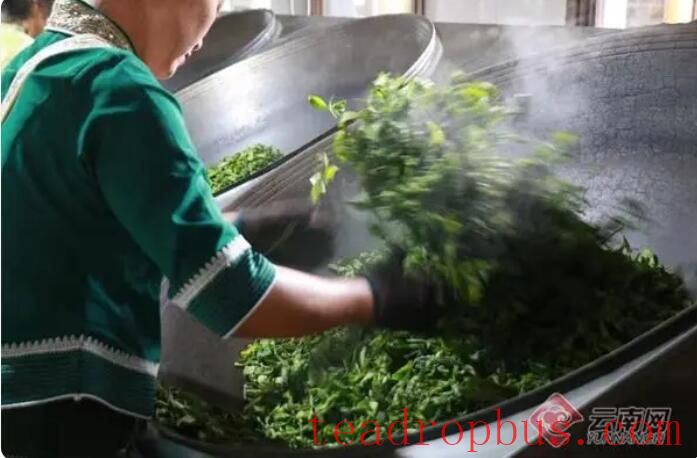
Tea Leaves
“After the epidemic, the Bulang ancestors began domesticating and planting wild tea trees, and together with other resident ethnic groups like the Dai, they developed techniques for growing tea under forest canopies,” explains Su Guowen. “Later, when developing new tea forests, the ancestors would choose the best day to hold a worship ceremony. The first tree planted after the ceremony would be designated as the ‘Tea Soul Tree'.”
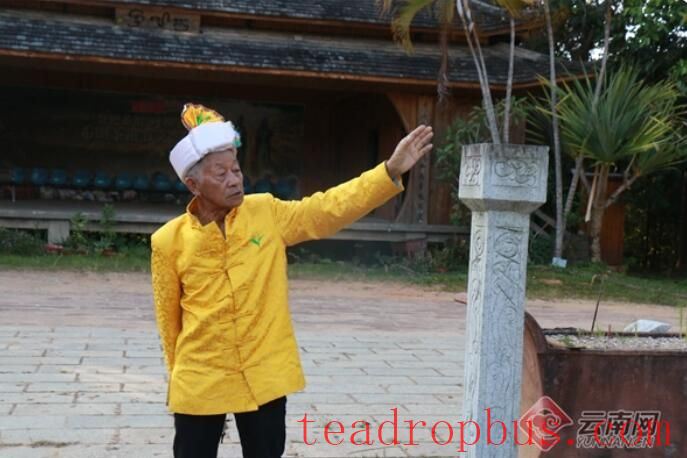
Su Guowen, Provincial Inheritor of Bulang Traditional Culture, Introducing Tea Culture
To the people of Jingmai Mountain, everything has a spirit, and tea has a soul. The Bulang, Dai, and other resident ethnic groups on the mountain plant, process, love, and protect tea based on this belief.
Today, approximately 90% of the labor force in the Jingmai Mountain heritage area is engaged in tea cultivation and processing, with over 75% of household income coming from tea picking, processing, and sales. A single leaf of tea, from being a magical “medicine,” to a refreshing drink, edible vegetable, sacrificial offering, and finally a commodity, has accompanied the various ethnic groups on the mountain through generations, and many even rely on tea for their livelihoods, sharing a symbiotic relationship with it.
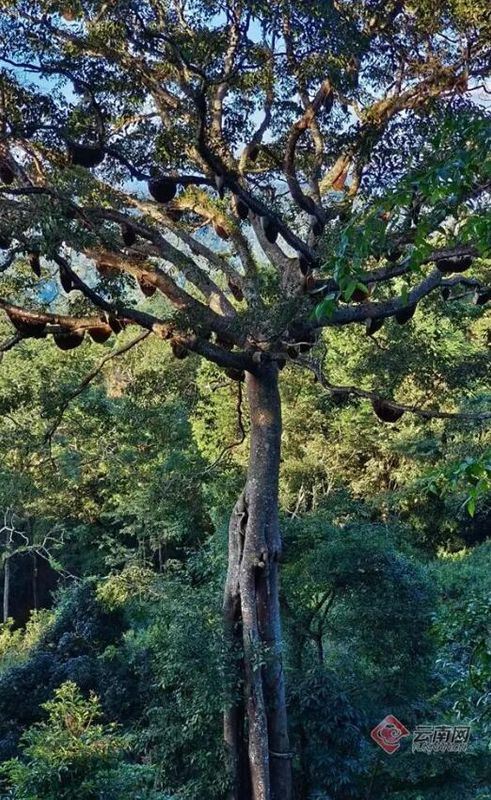
Honey Queen Tree
“Almost everything we eat, wear, and use comes from tea. Tea nourishes the people of this mountain,” says Yan Sailuan, the Party branch secretary and director of Jingmai Village.
Consensus: A Shared Covenant
According to legend, the Bulang ancestor Pa Aileng left instructions for his descendants: “Leaving you gold and silver will eventually run out, leaving you livestock will eventually die, but leaving you these tea gardens and tea trees will ensure that your descendants have food and clothing.”
Xiong Dengkui, a deputy researcher at the Lancang County Museum, states, “The Bulang and Dai people on Jingmai Mountain influence each other in terms of religious beliefs and living habits. Their shared respect for tea, from natural worship to harmonious interactions between humans and nature, and humans and tea trees, is due to their simple yet profound ecological ethics and wisdom.”
In Jingmai Mountain, protecting and preserving these precious ancient tea forests is both a tacit agreement and a common understanding.
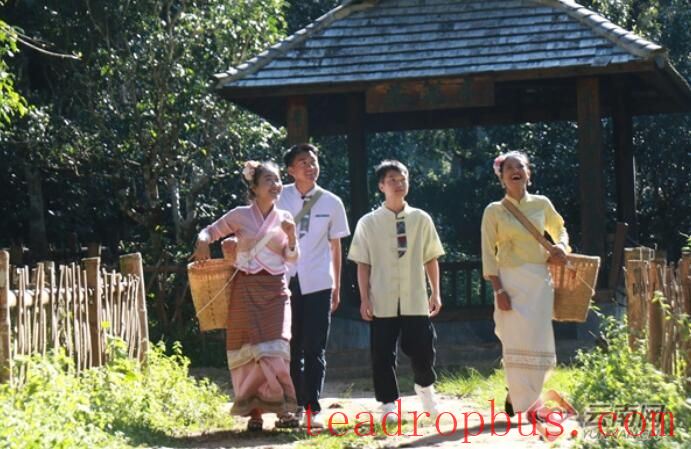
Joy on the Path to Tea Picking
In the care of the ancient tea forests, villagers abide by village rules and regulations, avoiding the use of fertilizers and pesticides. They rely entirely on the natural food chain and insect chain within the primary forest to self-regulate, using biodiversity to prevent pests and diseases, promote pollination, and provide natural nutrients, thus continuously producing high-quality organic tea.
“We never raise goats on Jingmai Mountain because they eat tea leaves. Instead, we graze yellow cattle in the tea gardens. The cattle feed on weeds, and their manure serves as natural fertilizer, nurturing the tea trees,” explains Yan Sailuan, the Party branch secretary and director of Jingmai Village.
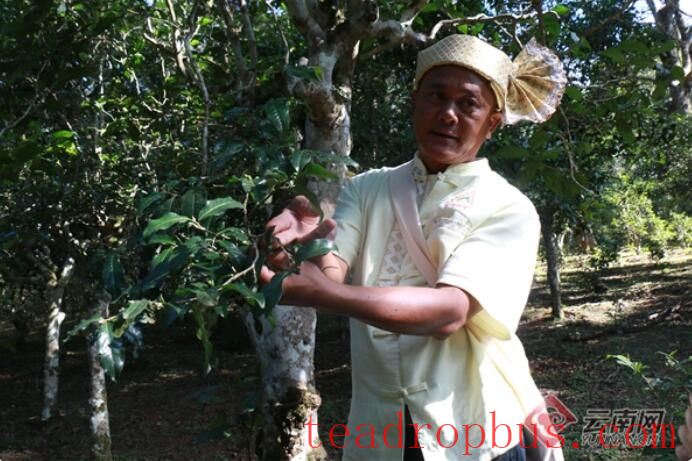
Yan Sailuan, Party Branch Secretary and Director of Jingmai Village, Introducing Under-Canopy Tea Planting
From afar, it appears to be a forest, but up close, it stretches endlessly as a tea garden. Within the ancient tea forests of Jingmai Mountain, the forest ecosystem is preserved, presenting a three-layered structure: canopy layer, shrub layer, and herbaceous layer. The upper layer consists of tall banyan, camphor, and oaks, the middle layer features shrubs such as ancient tea trees, soapberry fruits, and Osmanthus fruits, while the ground is covered with rich ferns and mosses. By retaining or transplanting plants beneficial to tea trees and cleverly distributing sunlight and nutrients, the quality of the tea leaves is improved. According to statistics, there are 943 species of seed plants, 187 species of terrestrial vertebrates, and 134 recorded bird species in the ancient tea forests of Jingmai Mountain.
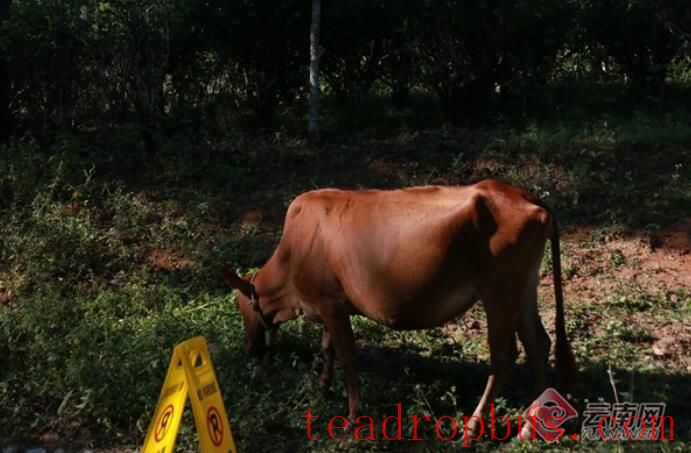
Yellow Cattle in the Tea Garden
To better protect the tea trees, local regulations prohibit the picking of summer tea in the ancient tea forests, with June 20th to August 20th designated as the no-picking period, allowing the tea trees to rest and rejuvenate.
“To prevent natural disasters such as pests and strong winds, ancient tea forests on Jingmai Mountain cannot be adjacent to each other, so protective belts are maintained between them,” Xiong Dengkui explains. “The tea culture centered around harmony on Jingmai Mountain has kept the ancient tea forests vibrant for thousands of years and created a unique cultural landscape of coexistence between forest and tea and harmony between humans and land.”
Generation after generation, the people of Jingmai Mountain have relied on the ecological wisdom found among the plants to continue the legendary thousand-year-old coexistence with tea.
Future: Prioritizing Protection, Passing on the Legacy
When news of the successful inscription spread to Jing